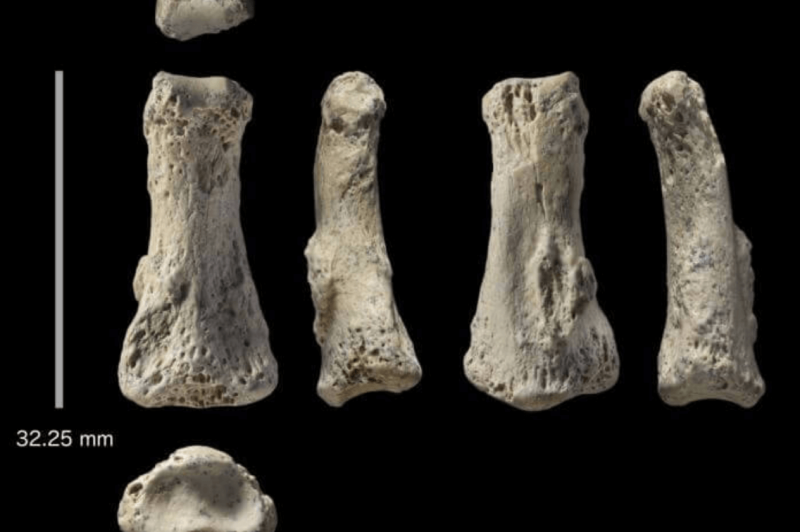It’s just a lone, boney middle finger, but the scientists who found it say it’s the oldest directly dated fossil of our species to ever be found outside of Africa and the Levant, a region that today comprises Israel, Syria, Lebanon, and Jordan. But the new discovery is not without its critics, who say older evidence of human habitation outside of this region exists elsewhere, and that the finger might not even be human.
…
[W]hat makes this new study exciting is that it’s the first direct evidence of early modern humans venturing outside of Africa and the Levant. What’s more, it affirms that migrations into Eurasia were more expansive than previously thought.…
Traditionally, scientists figured modern humans migrated out of Africa in a single wave some 50,000 to 70,000 years ago, moving along the coast and subsisting off marine resources. But the discovery of this finger bone suggests humans were moving about 20,000 to 25,000 years earlier than assumed.
…
As for the finger, the researchers don’t know the former owner’s gender or age, nor which hand it came from, but it does exhibit signs of manual stress.
…
Anthropologist Rolf Quam from Binghamton University (SUNY) agrees that the authors performed a thorough analysis of the fossil, but without ancient DNA, he’s doubtful we can definitively say that this fossil belongs to a Homo sapiens individual.
Read full, original post: 88,000-Year-Old Middle Finger Found in Saudi Arabia Could Rewrite Human History































